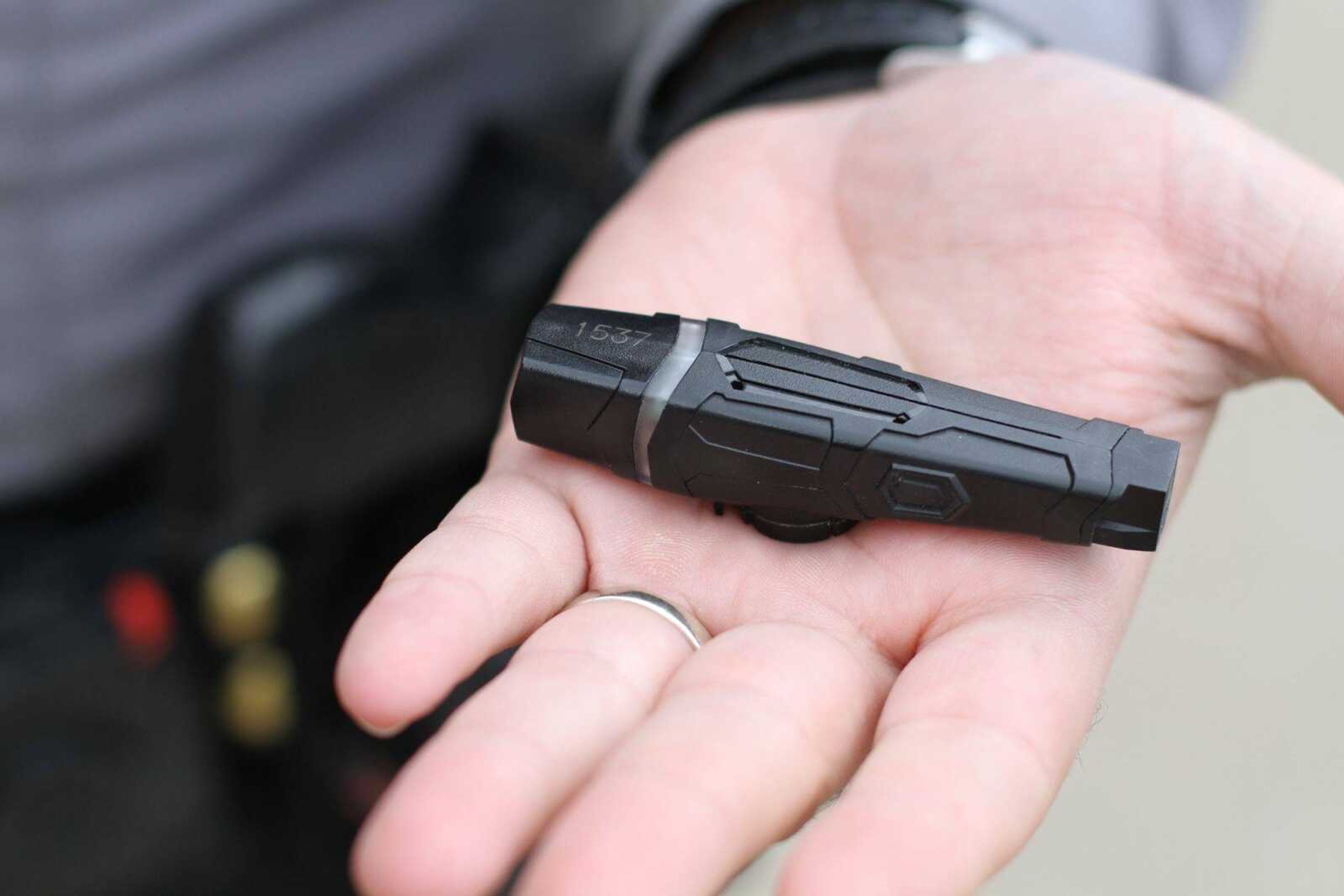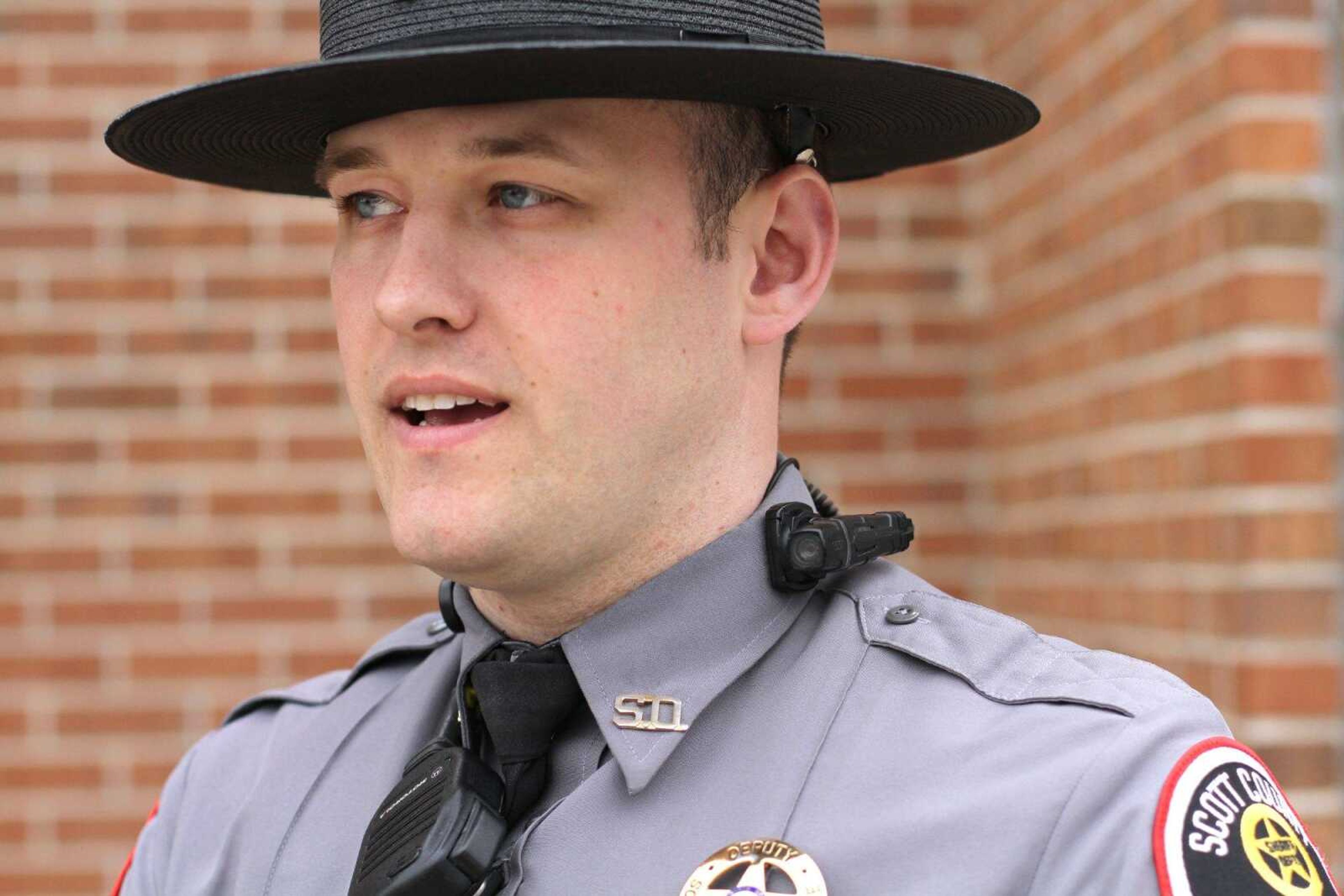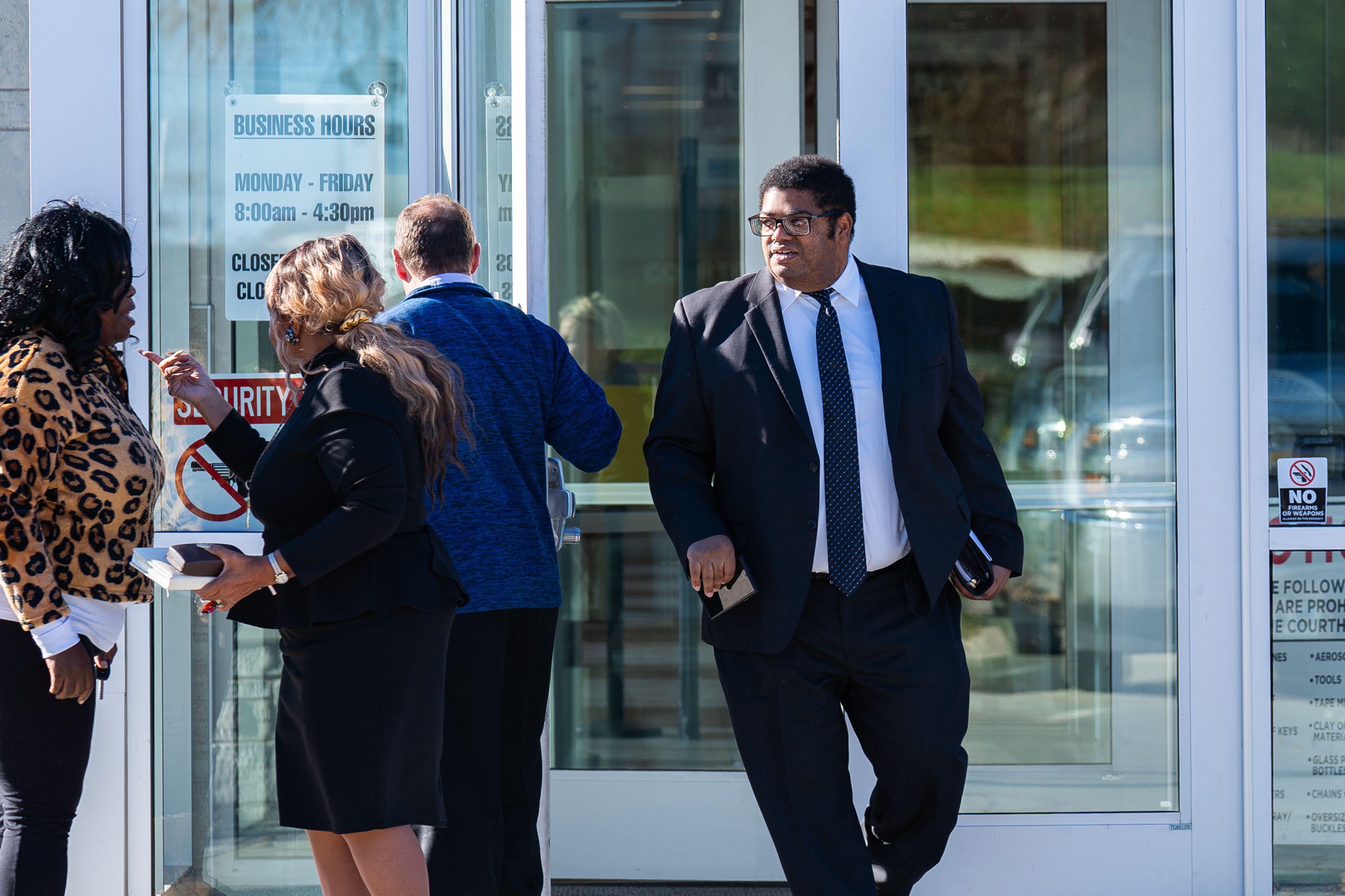Body cameras gain acceptance from Scott County deputies
Former Scott County chief deputy Kenneth Kinder said his fellow officers were a little apprehensive when they first were told they'd be wearing body cameras. "Change is always hard to take. Doesn't matter if it's good change or bad change. ... But they've come to see that it's good for them," he said...
Former Scott County chief deputy Kenneth Kinder said his fellow officers were a little apprehensive when they first were told they'd be wearing body cameras.
"Change is always hard to take. Doesn't matter if it's good change or bad change. ... But they've come to see that it's good for them," he said.
Deputies at the Scott County Sheriff's Office have been wearing the cameras since the last quarter of 2014, Kinder said, though they'd been using dashboard cameras and Tasers with built-in cameras for years.
Kinder, who resigned since being interviewed for this story, said deputies are instructed to record all types of interactions with the public.
"By policy, they are supposed to turn the camera on anytime that they're out of the car on any calls: when they're doing paper service, when they do traffic stops."

The Scott County policy is modeled after one created by the International Association of Chiefs of Police and includes an appendix for guidance on how to keep problems down, Kinder said.
"The policy is the black and white, basically, and the guidance is 'this is why we're doing it, this is what you need to do'" that will protect the sheriff's office, county and the parties personally involved, Kinder said.
Privacy
One concern that has been expressed nationally and worldwide is the question of privacy.
Deputies are not required to say when they are recording, but the cameras are worn on their collars and beep occasionally when they are recording.
"I've had a lot of people not actually realize that I've got it on until they hear a beep," deputy Matt Scroggins said.
Because of a 30-second lag between when the camera is on and when audio begins recording, department guidance instructs officers to turn on their cameras when they're about a minute from their destination. Sometimes people are waiting for the officers to arrive, and "I want to make sure we get everything," Kinder said.
Kinder said the cameras are used in private residences "all the time," and so far he has not had anyone express concern about privacy.
"If a crime occurred in a home, it's still a crime scene, and we have a lawful right to be there, and it's on," he said.
"There are some guidelines for turning the camera off," Kinder said, such as if a victim is uncomfortable being recorded. "But (the officers are) supposed to advise in writing why the camera was turned off."
Another front for security concerns: the system used to store videos.
With data breaches becoming more common, sensitive material in police body camera videos could become a target.
But Kinder doesn't seem worried. He said the system is accessed by logging on to a secure website. Each agency has its own account, and each user has his or her own login and password.
"Concerns? Sure. But no more so than anything else."
Data storage
The Scott County Sheriff's Office uses evidence.com for storing video data.
Because the cost for storage is constantly rising, the department created categories with retention time limits to help prevent the system from becoming cluttered.
The department uses 71 categories. The shortest retention period -- for recordings of interactions such as assisting another agency or administrative tasks -- is two weeks. The longest period -- five years -- is reserved for things such as arrests and executing search warrants. In some instances, such as use of force, the videos are kept until they're manually deleted.
Each camera is assigned to one deputy who uploads his or her own videos. If a video fits more than one category -- for example, a traffic stop that leads to an arrest -- the deputy is instructed to place it in the category that allows the video to be kept for the longest retention period possible.
Once the retention period is over, the video sits in a deletion queue for seven days, Kinder said. Officers who have access to review videos -- Lt. Dane Stausing and Sheriff Rick Walter -- receive a notification and are able to review the deletion queue.
"I haven't had this problem yet, but I know it could happen: What if they've done something wrong, they've misidentified something as a short retention period on purpose and it hits the queue?" Kinder said. "I go in and I see that, I've got a problem. I've got an integrity issue."
Costs and concerns
The cameras themselves are not the only cost for departments to consider when looking to implement body cameras. Kinder says the biggest implementation cost is data storage.
The storage cost is on per user, per month basis, so it varies. The storage, plus the licenses that each employee would need, would cost about $6,516 a year, according to an email from Stausing.
The cameras Scott County uses are about $600 each. Ten deputies are equipped with the cameras, as are a few other officers.
Kinder said the department's intention is to ensure all deputies who work in the jail and court eventually have a camera.
But, he said, "I have to figure what my priority is for the money."
The department has other equipment that needs to be updated, such as portable radios used by officers. Some of their radios have been in use since 2006 and don't always connect, which can pose a safety issue for them. New radios cost about $5,000 apiece.
"So where do we spend the money?" Kinder asked.
"It costs a lot of money to run law enforcement," he said, pointing to other expenses such as weapons, equipment and annual training.
Uses
In addition to serving as documentation of police interaction with residents, the videos also can be used as coaching tools.
Kinder has been known to give officers pointers based on what he sees them doing in the videos.
What they're doing "may be a legal method, but there may be something that they could do a little better," he said.
Kinder also told officers to say an interaction was recorded when they write their reports.
When a case is in court, if a prosecutor knows video was taken during the incident, he or she will ask for a copy, Kinder said. That way he or she can view it, and "there's no doubt in their mind how it went down."
"There's certain things that no matter how you write it, you may not be able to describe it as well."
Kinder said the videos are useful when dealing with complaints from residents.
"I've had it go both ways," he said. "I've had complaints where I've reviewed it and I've had to do discipline. But the majority of the complaints -- and this is what I'm very proud of -- is that they're unfounded."
A report published in 2014 by the U.S. Department of Justice's Office of Justice Programs Diagnosic Center said a study conducted in the Mesa, Arizona, Police Department showed the department received 65 fewer complaints about officers wearing body cameras compared to those not wearing them.
Scroggins said there are times when he knows a resident is likely to want to file a complaint. "Usually I get [Kinder] on the phone and go, 'OK, this is gonna happen. You're going to get this complaint, and this is what happened. Here's my side of it.'"
The videos help Kinder get to the bottom of things and decide whether disciplinary action is necessary.
Kinder, who with Stausing was responsible for reviewing the body-camera videos, said none of the deputies has expressed concerns about trust.
State legislation
The subject of body-worn cameras has been hotly debated since the August shooting death of Michael Brown, an unarmed black teenager in Ferguson, Missouri, by white police officer Darren Wilson.
Legislation was introduced in the Missouri House and Senate in January that would restrict access to footage from body cameras.
In January, state Sen. Doug Libla, R-Poplar Bluff, introduced Senate Bill 331, which would amend Missouri Revised Statutes to say any camera recording audio or video during an officer's official duties that is worn on the officer's person; attached to their vehicle, watercraft or aircraft; or attached to other device used by the officer "shall not be a public record for purposes of the state's open records law ... and shall not be disclosed by a law enforcement agency except upon order of a court in the course of a criminal investigation or prosecution or civil litigation."
In addition, the bill states, "No law enforcement agency shall be required by the state to provide cameras as described ... to officers employed by the agency, nor shall the state require any peace officer to wear such cameras."
Missouri House Bill 762, introduced by Galen Higdon, R-St. Joseph, says, "any information acquired by a law enforcement agency or a first responder agency by way of a dashboard camera in the agency's patrol vehicle or a body camera on a law enforcement officer shall be inaccessible to the general public."
The House Public Safety and Emergency Preparedness Committee has recommended the House pass HB 762 with amendments. The bill has not been scheduled for a vote.
Likewise, the Senate Transportation, Infrastructure and Public Safety Committee has reported SB331 to the Senate; it has been placed on the informal calendar for a vote Monday.
kwebster@semissourian.com
388-3646
Pertinent address:
131 S. New Madrid St., Benton, Missouri 63736
Connect with the Southeast Missourian Newsroom:
For corrections to this story or other insights for the editor, click here. To submit a letter to the editor, click here. To learn about the Southeast Missourian’s AI Policy, click here.










